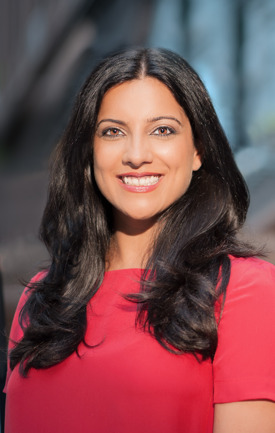Women Who Don't Wait in Line
Reshma Saujani
Thursday, 28 Jan 2016 at 8:00 pm – Great Hall, Memorial Union
Reshma Saujani is the founder and CEO of Girls Who Code, a national nonprofit organization working to close the gender gap in technology and prepare young women for jobs of the future. In her groundbreaking new book, Women Who Don't Wait in Line, Saujani advocates for a new model of female leadership focused on embracing risk and failure, promoting mentorship and sponsorship, and boldly charting your own course - personally and professionally. After years of working as an attorney and an activist and fundraiser, Saujani left her private sector career behind and campaigned as the first Indian American woman in the country to run for US Congress. Following the highly publicized race, she stayed true to her passion for public service, becoming Deputy Public Advocate of New York City. Saujani is a graduate of the University of Illinois, Harvard's Kennedy School of Government, and Yale Law School. Program for Women in Science and Engineering 30th Anniversary KeynoteCosponsored By:
- College of Business
- College of Liberal Arts & Sciences
- Computer Science
- Digital Women
- Engineers' Week
- Information Technology Services
- Program for Women in Science and Engineering
- Supply Chain and Information Systems
- Women's and Diversity Grant
- Committee on Lectures (funded by Student Government)
Stay for the entire event, including the brief question-and-answer session that follows the formal presentation. Most events run 75 minutes.
Sign-ins are after the event concludes. For lectures in the Memorial Union, go to the information desk in the Main Lounge. In other academic buildings, look for signage outside the auditorium.
Lecture Etiquette
- Stay for the entire lecture and the brief audience Q&A. If a student needs to leave early, he or she should sit near the back and exit discreetly.
- Do not bring food or uncovered drinks into the lecture.
- Check with Lectures staff before taking photographs or recording any portion of the event. There are often restrictions. Cell phones, tablets and laptops may be used to take notes or for class assignments.
- Keep questions or comments brief and concise to allow as many as possible.




